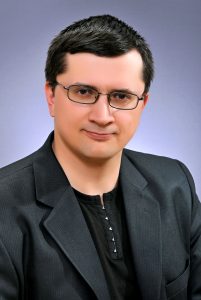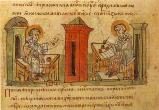
Mykola Vitenko – Associate Professor of the Department of Slavic History, Candidate of Historical Sciences, Associate Professor.
Scopus Author Identifier
Biography
He was in 2002 from the Faculty of History of Vasyl Stefanyk Precarpathian University. He began his career in 2002, worked as a history teacher at Cheremkhiv Secondary School of I-II grades. In 2002-2005 he studied at the graduate school of Vasyl Stefanyk Precarpathian National University under the guidance of Professor P. Fedorchak. In 2006 at the Yuri Fedkovych National University of Chernivtsi he defended his dissertation on “Polish-Ukrainian relations in Galicia: socio-economic aspect (last third of the XIX – early XX century.)” In specialty 07.00.02 – World History. From 2006 to 2008 he worked as an assistant, from September 2009 – Associate Professor of Slavic History, Vasyl Stefanyk Precarpathian National University. For scientific achievements he was awarded the Ivano-Frankivsk Regional State Administration and the Ivano-Frankivsk Regional Council “Young Scientist of the Year” (2010). In 2011, M. Vitenko by the decision of the Certification Board of the Ministry of Education and Science of Ukraine was awarded the academic title of associate professor of Slavic history. He completed research internships in Ukraine (Yuri Fedkovych Chernivtsi National University, 2011, 2016) and in Poland (University of Warsaw, 2008-2009). Member of the jury at the III and IV stages of the All-Ukrainian Olympiad in History. Author of a number of scientific publications, educational and methodical literature, textbook “History of Russia” with the stamp of the Ministry of Education and Science of Ukraine, co-editor of a number of archeographic publications, coordinator of the project “Western Ukrainian People’s Republic. 1918 – 1923. Encyclopediaˮ.
Reads normative courses for students of a number of specialties:
1) 032 “History and Archeology”:
- a) History of foreign Slavs (ancient times and the Middle Ages);
- b) History of foreign Slavs (modern period);
- c) Source studies of the history of foreign Slavs;
- d) Socio-economic development of the Slavic countries in the late eighteenth – early twenty-first century.
2) 014 “Secondary education (history) ˮ:
- a) History of Central and Eastern Europe in ancient times and the Middle Ages;
- b) History of Central and Eastern Europe of modern times;
- c) Historical portraits of political and public figures of Slavic countries in history lessons at school;
- d) Socio-cultural processes in the Slavic countries in the XIX – early XXI centuries. in history lessons;
- e) The use of information resources in the process of studying history in high school. 3) 035,033 Slavic languages (translation included), the first – Czech (“Czech language and literature”):
- a) “History of the Czech Republic” (syllabus, methodical).
Research interests: history of Slavic peoples, history of Galicia, history of Prykarpattia, Polish-Ukrainian relations.
